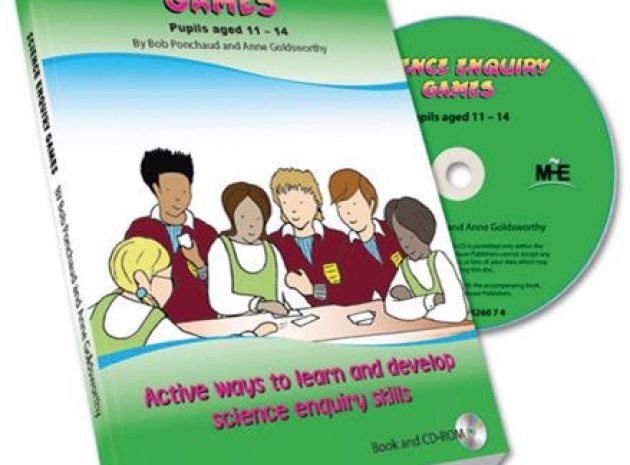We all want to see students actively and enthusiastically learning about science. We’d like the same from teachers, too. But how do you ensure science lessons are creative, relevant and exciting for all learners? The answer is simple: make them active. Learning is more interesting and easier to understand when it is practical, hands-on and minds-on. Even better, science teaching can be greatly enhanced by whole body learning, as movement anchors thought. We learn best when we think, feel and do - and so actively engaging in science learning makes perfect sense.
The most memorable INSET sessions I have taken part in have, for better and for worse, been the active ones and the inactive ones respectively. The sessions where I played, explored and discovered have positively impacted on my classroom teaching. The sedentary events where the ‘facilitator’ talked at us all day made for painful feedback on the evaluation forms. It’s the same for children; involvement is the key to engaging with science.
Get talking
One innovative resource that provides creative opportunities for working scientifically and making science active is Science Enquiry Games for pupils 11-14 years, from Millgate House Education; this tried and tested book and CD promotes meaningful science talk and helps students collect and understand evidence through a number of clever and challenging games.
The book gets straight down to business after a brief but useful introduction and covers nine strategies that can be used in numerous ways to support learners to review and develop their enquiry skills. The well developed and carefully honed games represent a good spread and include planning, fair testing, identifying equipment, repeat readings, using tables, drawing conclusions, vocabulary, evaluating and an enquiry overview. These activities will help students appreciate there are more evidence-gathering investigations than carrying out a fair test or controlling variables.
Embedded within the games are active assessment strategies for promoting talk such as concept cartoons, they are all richly illustrated with student-friendly pictures. There are at least two different approaches presented for each strategy such as a moving around the room version or a ‘play on a table top’ alternative. The photocopiable games can also be shared using the PDF on a whiteboard. They naturally boost thinking skills and kick-start science talk by bringing out the human aspects of the subject.
In the book you will find succinct and helpful notes for each game explaining what it is about, why it is important, the resources needed, how you can use the game in more than one way and how to apply ideas via further activities. These are all very clearly presented and will help support your subject knowledge too. PDF versions of all the resources needed to play the games are found on the CD. Beyond the games there are no notes regarding assessment which I think is a bit of a gap and would be a welcome inclusion. However, this is a wonderfully inventive resource that addresses all aspects of science investigations with pupil-friendly worksheets full of challenge and critical thinking.
Involve everyone
You could use the games as warm-ups, main activities or for science clubs. They are certainly very handy for staff training purposes. CPD is available to support this resource and having attended one of the sessions myself I can whole-heartedly recommend signing up should your budget allow. I hadn’t realised how competitive I was until I had tried ‘fair test scramble’ with my colleagues! You could of course organise your own sessions by selecting a couple of the games and showcasing their potential.
In essence, the games can provide insights into learners’ initial thinking, help identify misconceptions, plan for future learning and help students see where their thinking has changed. Using the games will surely open classrooms up to more debate, discussion and exploration and could be really useful for teaching the trickier bits of science.
Does this approach fit in with the curriculum changes? Yes, it does. Whatever alterations the curriculum goes through, and no matter how many times science is tinkered with, enquiry will remain at the heart of teaching and learning at all Key Stages and so this resource will always be fit for purpose. It can encourage productive interactions amongst learners and between students and teachers, in the form of collective problem-solving, planning, decision-making, and plenty of fruitful learning conversations.
Science Enquiry Games is a package of collaborative activities full of variety, creativity and choice, harnessing the potential of science enquiry in novel ways and so is ideal for anyone who wants to teach enquiry skills professionally and practically while keeping their class dynamically engaged – and at just £25 it’s hard to argue against it being real value for money, too.










